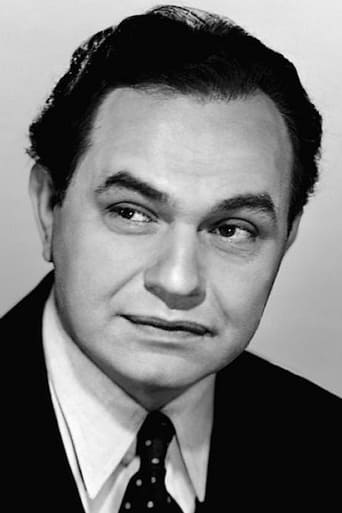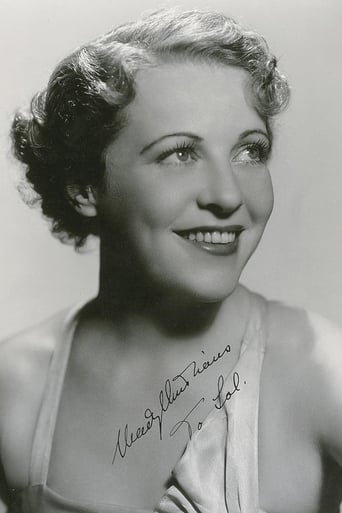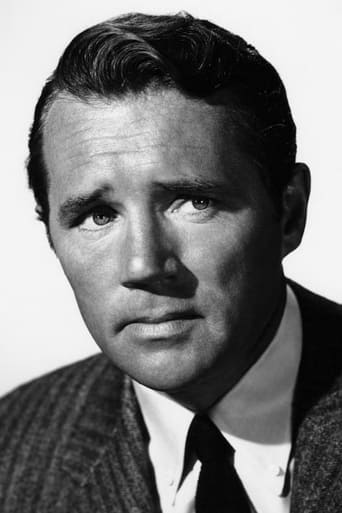SpuffyWeb
Sadly Over-hyped
Ensofter
Overrated and overhyped
Brendon Jones
It’s fine. It's literally the definition of a fine movie. You’ve seen it before, you know every beat and outcome before the characters even do. Only question is how much escapism you’re looking for.
Darin
One of the film's great tricks is that, for a time, you think it will go down a rabbit hole of unrealistic glorification.
mark.waltz
Having seen a ton of the classic American theater, I regret not having seen this live. Like "Death of a Salesman" and "A Long Day's Journey Into Night", every time this has been revived, it was the hottest non- musical ticket on Broadway. It also took a long time for me to get to this movie version, quite edited, but devastating and engrossing none the less.Post war America was in turmoil in more ways than just the hardships of returning soldiers. A cynical world dealt with political and social upheavals, and this powerful drama shows it through the family angle in ways that are sometimes painful to face in the way it relates to real life.Powerful munitions plant owner Edward G. Robinson has grown in success while his former partner (Frank Conroy) has gone to prison for allegedly selling the government detective airplane parts. Rather than feel any sort of guilt, Robinson has been hiding something in regards to his part in it, having been on trial and briefly imprisoned, but acquitted for any wrong doing. The whole town seems to believe he was as guilty (or more), but stands around and says nothing-for the most part.His wife, Mady Christians, delusionally believes that a son who went off to war wasn't killed as rumored; Son Burt Lancaster is now engaged to his brother's girl, and Conroy's son (Howard Duff) has come back to settle the score.What starts off as lighthearted family fare quickly turns serious as all of these secrets and more come out. Little bits by the neighbors are surprisingly fresh, real and still timely. Performances by Robinson, Christian and Lancaster are intense and filled with honest, raw emotions. This is great theater at its most consuming, although I would have loved to have seen a full version of the play with this glorious cast.
Edgar Allan Pooh
. . . remain the five most bittersweet words in Illinois history, so it's natural for playwright Arthur Miller to set ALL MY SONS in the Land of Lincoln, and name his main character so he can rephrase "Shoeless" Joe Jackson's Black Sox Scandal epitaph as, "If you want to know, just ask Joe." Mr. Miller did not believe in the American Way (which is the main reason that his wife, Marilyn Monroe, dumped him). Arty campaigned against our credo, "See something, say something" with his hysterical story, THE CRUCIBLE. He denigrated the American Way (Amway, for short) which recognizes that "You cannot have your One Per Cent of Big Winners without enduring whining from the 99% of Deluded Losers" with his DEATH OF A SALESMAN "Willie Loman" character. Most glaringly, here in ALL MY SONS, it never crosses the mind of war profiteer "Joe Keller" to fix his warplane faulty cylinder peccadillo the C of C way, by making substantial "campaign contribution" bribes to the Party of Lincoln. Had he written off the cost of doing business with a well-placed $500 here and a thousand there, his patsy partner Herb Deever never would have been indicted in the first place. There would have been no scandal (and NO play or movie, either!). Pinko fellow traveler Arty's sad tales all rely upon his near-total ignorance of the American Way.
jotix100
A moral dilemma is at the center of this excellent expose about an unscrupulous man that has been responsible for the death of young pilots during WWII. Joe Keller, a prosperous man, is by all appearances a successful businessman. Most people in his town think he got away with murder. Joe, in defending himself, points out that justice prevailed, feeling vindicated for the crime that sent his partner, Herbert Deever, to jail for a crime he is involved after following Joe's orders.The past comes to haunt Joe Keller as Annie Deever, the daughter of Herbert Deever comes to visit the Kellers. Kate Keller is suffering for Larry, her missing in action son, who after three years after the end of that conflict has not come back. Annie has fallen for Chris, the other son that now works in his father's business. Annie's visit proves to be the spark that marks the unraveling of Joe Keller, as he comes to term in facing his guilty conscience. Learning the real reason of Larry's fate in the war brings Joe to face a reality he did not want to deal with because he chose the status quo, knowing full well his own guilt in the tragedy he provoked.Arthur Miller wrote the play in which this film is based. The original cast included Ed Begley, Arthur Kennedy and Karl Malden, in the legendary production directed by Elia Kazan. The playwright took a hard look at the American Dream, as early as the boom years after the end of WWII, something clearly unheard of in those days. Mr. Miller became a new voice in the theatrical world by bringing forward issues that took a look at the core of the American society. The inspiration for the drama was based on a real story that appeared in a newspaper. Miller questioned many things Americans took for granted.The film version boasted an ensemble cast dominated by Edward G. Robinson, an actor that gave impressive accounts of the characters trusted to him to bring to life. His Joe Keller is a calculating man that feels he did not do anything wrong. Burt Lancaster plays Chris, the son that must fight for his right to marry Annie, the girl the Kellers did not want for him because of her involvement with Larry. Mady Christians was impressive as Kate, the wife who chose to go along with a husband she loved, but who she thought was guilty, all along. The weakest role in the film version was perhaps Louisa Horton who was miscast as Annie. In a way, this was her first screen appearance, so it might have been she felt insecure in connecting with her Annie. Howard Duff, Arlene Francis, Harry Morgan and the excellent Frank Conroy, are seen in minor roles.Irving Reis directed Chester Erskine's screen adaptation. The black and white cinematography was by Russell Metty and the music score is credited to Leith Stevens.This is a powerful drama.
funkyfry
"All My Sons" is one of those disappointing films that goes far enough in a certain direction to become somewhat interesting but doesn't really follow these ideas to any kind of meaningful or even dramatically satisfying conclusion. To how much of an extent that was the fault of the original work by Miller and how much was due to the changes by the screenwriters it's impossible for me personally to judge because I'm not familiar with the material. But regardless of the reason, in my opinion it doesn't add up to a particularly good film.Chris Keller (Burt Lancaster) is the somewhat disillusioned son of an industrialist, Joe Keller (Edward G. Robinson) who happens to be in love with the daughter of his father's former business partner (Howard Duff), Ann Deever (Louisa Horton). What could have been a rosy small town setup however has been sent off the tracks by a criminal investigation into the war-time practices of the company, which was accused of passing off defective parts which ended up killing American pilots – Ann's father has been sent to prison for a crime that it becomes increasingly obvious was probably just as much Edward G's character's fault.The great weakness of this film is that it's completely obvious that his character is the guilty one. Otherwise there would be no story at all. And a moral dilemma should really have more weight than this one. Should Keller have rejected the defective parts, even if it meant shutting down his plant? Obviously he should have rejected them, so there's really no dilemma. The film tries to convince us that his plant would have been forced out of business if he had rejected them, and yet at the same time shows us that his business was booming during the war. This makes the economic element of the dilemma unconvincing. And even if we did believe that he had to choose between rejecting the parts and closing his plant, his speech about how hard he's struggled to create this legacy for his children hardly inspires me to empathy with his "plight".As if to quash any last possibility of compelling drama, the film's eventual conclusion focuses on a letter from Chris' brother, who died in the war. His letter, which the film implies should be like an earthquake of drama shaking this family, is instead predictable and its tragic consequences are also predictable.





